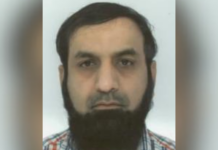Malia Bouattia has become the first Muslim woman to be elected head of the National Union of Students.
Bouattia, who is currently the NUS Black Students Officer, was elected at stage one of the count with 372 votes, with current president Megan Dunn coming in second with 328 votes.
The election took place during the NUS’s National Conference in Brighton.
Bouattia, who is a former Birmingham University student, has campaigned against the Prevent policy which is being implemented in British universities which she considers Islamophobic and racist. She is also well-known to be pro-Palestine.
During her emotional election speech Bouttia said she was forced to flee Algeria as a child due to the civil war there. She said her family brought her to the UK so that she could have a good education.
She also launched an attack on the Conservative government for taking away the rights of the underprivileged and said her name had been dragged through the mud by right-wing media.
Moazzam Begg, who has shared a platform with Bouattia during the anti-Prevent Students Not Suspects tour, called her “phenomenal.”
Subscribe to our newsletter and stay updated on the latest news and updates from around the Muslim world!
“I’ve had the pleasure of working alongside her and have witnessed her tireless efforts against the government’s racist and Islamophobic Prevent agenda and her genuine concern for the welfare of students. She is the first non-white person to have been granted this position. May Allah grant her strength, guidance, courage and success for the road ahead.”
The mainstream media have launched a campaign against Bouattia in recent months, claiming that she has previously refused to condemn ISIS and insinuating that she is anti-semitic, which she denies.
In response to that Bouattia has said: “It seems I have been misrepresented. I am extremely uncomfortable with insinuations of anti-Semitism. I want to be clear that for me to take issue with Zionist politics is not me taking issue with being Jewish.
“In fact, Zionist politics are held by people from a variety of different faiths, as are anti-Zionist politics. It is a political argument, not one of faith.”




















